About 49 million Congolese nationals are preparing to go the polls on December 20, 2023 to elected the President of the country that is only attempting to secure a second peaceful transfer of power since independence- that is in case incumbent Felix Tshisekedi fails to secure a second term.
Tshisekedi in power since January 2019 will be seeking a second and final term of officer as per the Constitution of the Democratic Republic of Congo (DRC). His term has seen a lot of resistance from the 2018 runner-up Martin Fayulu who has continued to claim that he was rigged out of victory.
The Independent National Electoral Commission (CENI) has already registered 24 candidates including incumbent Tshisekedi but the final list will be published on November 18 after the vetting by the Constitutional Court of the country. The campaigns will run from November 18 to December 16.
Before the opposition takes heed to the advice by the civil society and political commentators to field a joint candidate, there remains five top names challenging the incumbent. Tshisekedi himself is a product of a protracted opposition struggle led by his late father Étienne Tshisekedi.
Felix Tshisekedi
All the 23 aspirants are ganging up against one man-Félix Antoine Tshisekedi Tshilombo who is the incumbent and seeking a second term in office. Tshisekedi has enjoyed his leadership so far because amidst all the troubles back home including an attempted Coup, he managed to Chair the African Union summit of Heads of State for one year.
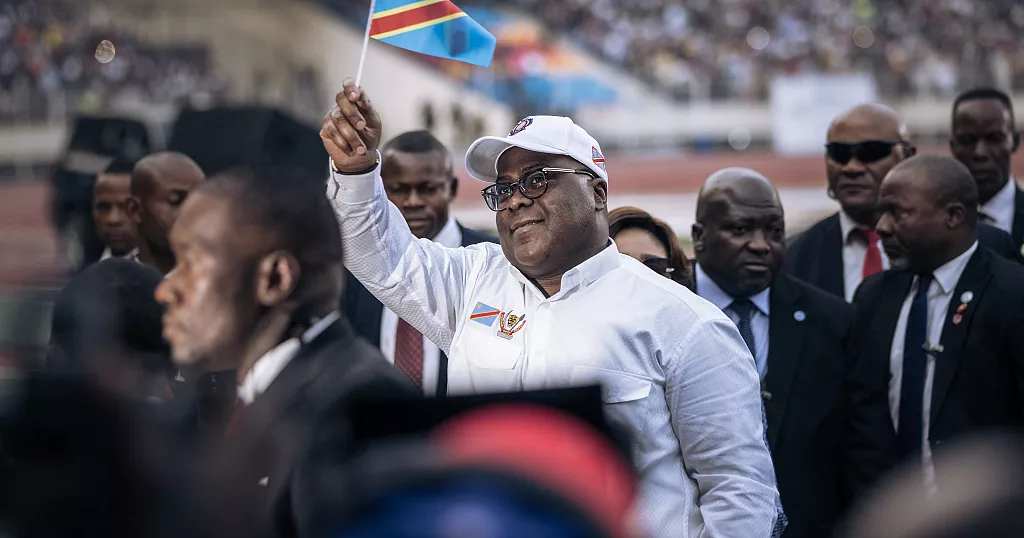
Tshisekedi born on June 13 1963 is the leader of Union for Democracy and Social Progress (UDPS), the DRC’s oldest and largest party.
A man fused with political blood; the President is a son of Étienne Tshisekedi who was a Prime Minister of Zaire (now DRC) for three times before moving on to battle Mobutu Sese Seko who was ousted in a civil war that ushered in Laurent Desire Kabila the father to Joseph Kabila.
In the early 1980s, Tshisekedi started tasting the wrath of tyrannic rule of Mobutu when as a youth was forced to accompany his father into house arrest in his native village in central Kasaï following the formation of the UDPS party. Life would change when Mobutu relaxed the rules and allowed the family to leave house arrest in Kasai hence the flamboyant young man flying to Brussels, Belgium where he started out as a cleaner and pizza deliverer.
After being declared the winner of the 2018 elections, he faced a legal battle lodged by runner-up Martin Fayulu but Constitutional Court of the DRC upheld his victory.
He was later accused of making a deal with his predecessor Kabila to have him takeover despite Fayulu being claimed by the influential Catholic Church to have won the elections.
Martin Fayulu
Martin Madidi Fayulu was born on November 21, 1956 in Kinshasa, then Léopoldville. He is a former ExxonMobil executive, having worked with the oil company from 1984 until 2003.
Fayulu as the company’s director-general in Ethiopia as his last post. His involvement in politics began in 1991 when he attended the Sovereign National Conference, which brought together delegates from different regions and organizations to campaign for a multi-party democracy. Then President Mobutu allowed the conference to take place but rejected its conclusions.
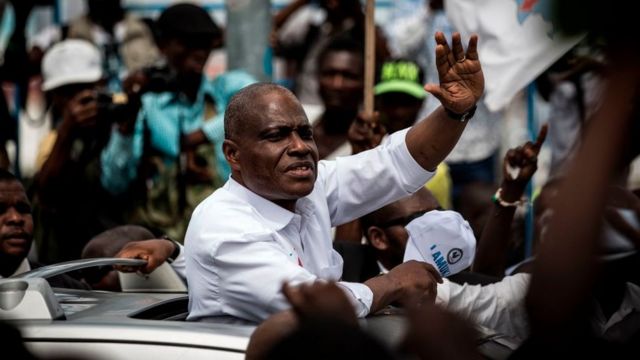
Fayulu did not enter politics full time until 2006 almost a decade after the ousting of Mobutu by Laurent Dezire Kabila. In the 2006 and 2011 general elections, he was elected as a member of the National Assembly. In 2009 he established the Commitment for Citizenship and Development party. He would later rename the party as the Engagement for Citizenship and Development party.
On 11 November 2018, he was chosen by seven opposition leaders to be their joint presidential candidate before eventual winner Tshisekedi and Vital Kamerhe, the other opposition candidate, rescinded their endorsement of his candidacy and formed their own pact with Tshisekedi as candidate.
Fayulu challenged the result in the DRC’s Constitutional Court, which has been criticised for being staffed primarily by Kabila appointees, and thus by late January 2019 the court ruled that Tshisekedi was the rightful winner and he was sworn in as President. He has continued to remain active in politics since the election, continuing to claim that he was the rightful winner.
Marie-Josée Mpunga
Marie-Josée Ifoku Mputa Mpunga was born on February 6, 1965 in Kinshasa and spent her childhood in Belgium and the Netherlands before returning to the DRC and graduating from a high school in the capital. After also attending other universities in France and Canada, Ifoku worked in real estate and in the automobile industry for several years.
After returning to the country in 2004, Ifoku started engaging in political and in 2015 she become a deputy special commissioner of Tshtuapa Province. She later became vice-governor and then governor of the province, an office she served in from 2016 to 2017.
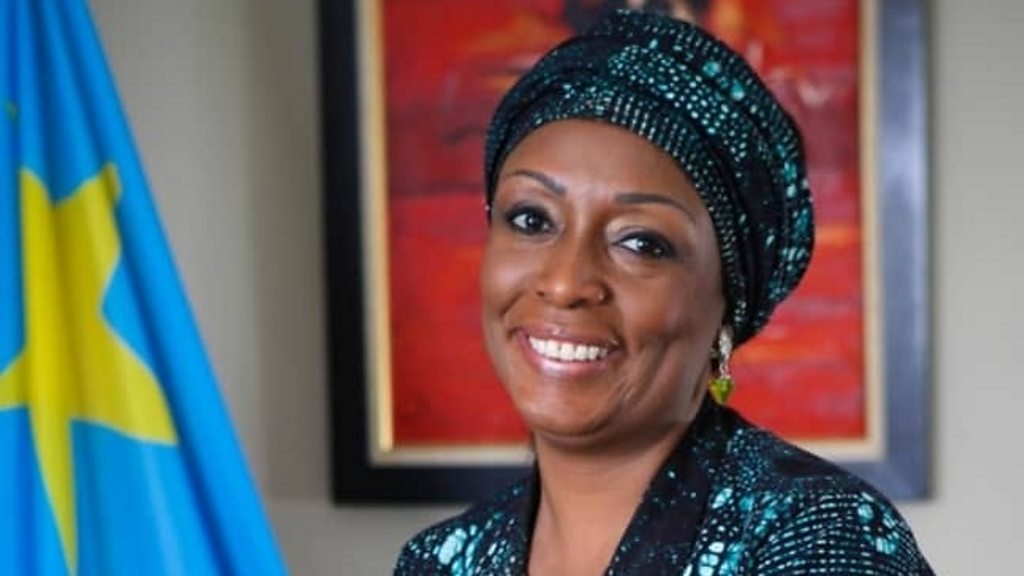
The only woman contesting for the 2023 elections, Ifoku was also the only female candidate on the 2018 ballot that had 21 candidates.
Known as a bold and committed political figure, has told her supporters that she returns to vie for the top political office to make her voice heard and defend her vision of change for the country.
While submitting her candidacy to the CENI early this month, Ifoku said she wants to bring an end to the system of predation in the DRC which has oppressed the Congolese for too long as the people go through political turbulence, tribal conflicts and poor management of public affairs.
The candidacy of Marie Josée Ifoku, who is also president of the Alliance of Elites for a New Congo (AéNC) has been described by her supporters as proof of her commitment and determination to bring real change in the country.
Dr. Denis Mukwege
A renowned gynecologist, Dr Mukwege was born on March 1, 1955 and comes from a Christian family. His father was a Pentecostal Church Minister something that Dr Mukwege has emulated to become a pastor himself.
Dr Mukwege almost died at birth due to an infection but was saved by the Swedish Pentecostal missionary and midwife Majken Bergman. And it is this story of his near death as a baby that inspired Dr Mukwege to study medicine. His medical venture was as a result of him witnessing the complications that women in the Congo experienced during childbirth who had no access to specialist healthcare, and he wanted to heal the sick people for whom his father prayed.
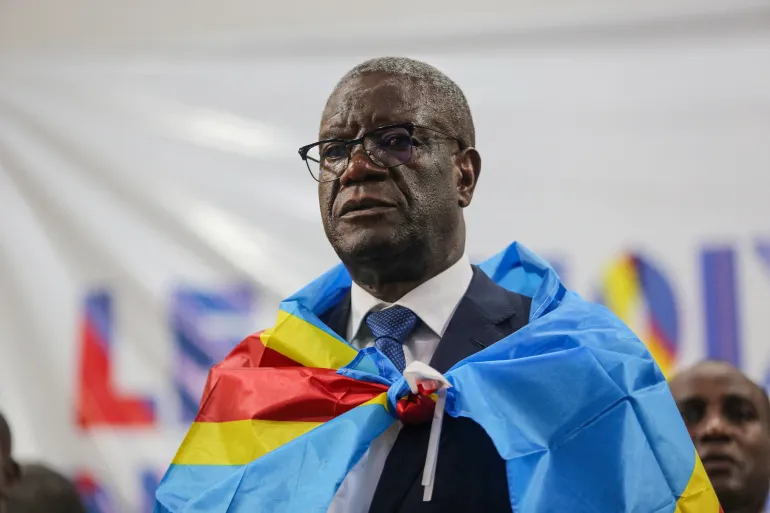
After graduating with a medical degree from the University of Burundi in 1983, Mukwege worked as a pediatrician in the rural Lemera Hospital near Bukavu.
However, after seeing female patients who often suffered from pain, genital lesions, and obstetric fistulas after giving birth due to an absence of proper care, he decided to study gynecology and obstetrics at the University of Angers, France, obtaining his masters and completing his medical residency in 1989. He was awarded his doctorate in medicine in September 2015 from the Université libre de Bruxelles for his thesis on traumatic fistulas in the Eastern Region of the Democratic Republic of the Congo.
In 2018, Dr Mukwege and Iraqi Yazidi human rights activist Nadia Murad were jointly awarded the Nobel Peace Prize for “their efforts to end the use of sexual violence as a weapon of war and armed conflict”.
Dr Mukwege has treated thousands of women who were victims of rape as a weapon of war since the Second Congo War, some of them more than once, performing up to ten operations a day during his 17-hour working days.
Since founding Panzi Hospital in Bukavu, he has led the treatment of more than 82,000 patients with complex gynecological damage and trauma. An estimated 60 percent of these injuries result from instances of sexual violence being used as a weapon of war, with most of the patients of the time coming from conflict zones.
Some of the awards that Dr Mukwege has won include; UN Human Rights prize (New York, December 2008); Olof Palme Prize (Sweden, 2008); African of the Year (Nigeria, January 2009); Wallenberg Medal (University of Michigan, October 2010); Civil Courage Prize (October 2013); Human Rights First Award (August 2013); and, the Solidarity Prize received from Médecins du Monde and the Saint-Pierre University Hospital (Brussels, October 2014).
Adolphe Muzito
Adolphe Muzito was born on February 12, 1957 is served as President Kabila’s Prime Minister between 2008 and 2012. Before that, he has served as Minister for Budget from 2007 to 2008.
An economist by training, Muzito hails from Kwilu District as appointed Prime Minister on September 25, 2008 replacing Mr Gizenga who had resigned as Prime Minister for reasons related to age and health.
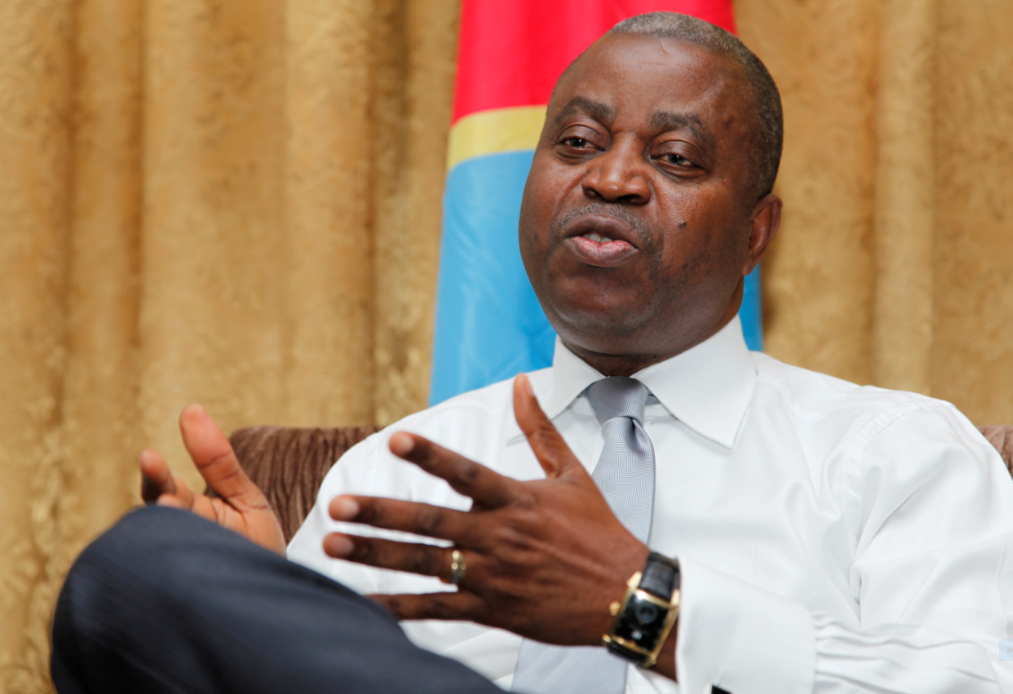
Muzito’s government was appointed on October 26, 2008 and it included 53 members: three deputy prime ministers, 36 ministers, and 14 deputy ministers. The government was dominated by members of the People’s Party for Reconstruction and Democracy, and Kabila described it as “combat team to which has been assigned the essential missions of security and reconstruction”.
Muzito resigned as Prime Minister on 6 March 2012 and is now attempting to bounce back into leadership this time as President.
Matata Ponyo Mapon
Matata Ponyo Mapon was born on June 5, 1964 in the town of Kindu. He went to Mwanga primary school in 1970 in Kindu before attending Tuendelee school in 1976 in the same hometown where he attained the Primary school certificate.
In 1983, he obtained his high school diploma from the Bwindi Institute in Bukavu before going to the University of Kinshasa where he graduated in economics in 1988.
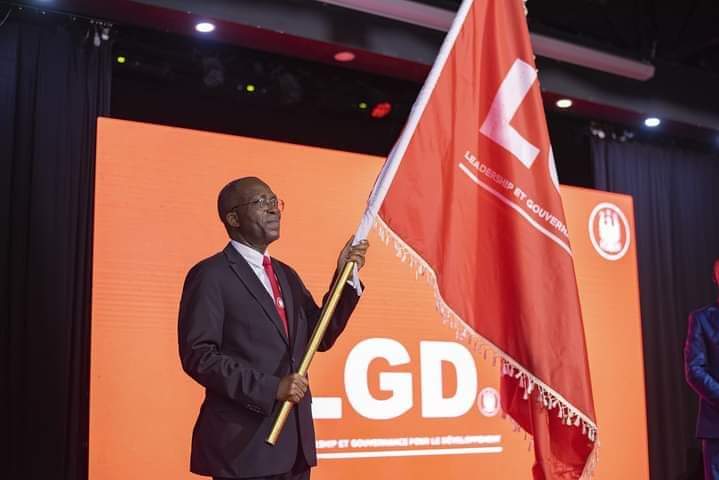
Mapon served as Prime Minister between 2012 and 2016 under President Kabila who had previously assigned him duties as Minister of Finance from 2010 to 2012 April 2012. Currently, he is the Senator for Maniema electoral area.
Mapon attained his doctorate of economics from the Protestant University in Congo in February 2018. He remains a lecturer at the same institution and his areas of expertise are economic and major monetary issues in developing countries.
While serving as Minister of Finance, Mapon on February 12, 2012 survived a plane crash in Katanga province near the town of Bukavu when a Katanga Express Gulfstream IV business jet carrying several Congolese government officials overran the runway and crashed on landing at Kavumu Airport. He was one of the several survivors in an accident that left two passengers and both crew members dead.
As one of the country’s top economists, Mapon has had a glittering career. Some of his highlights are; Executive at the Central Bank of Congo (1988-2000); Advisor to the Ministry of Finance (2000-2010); Mission of the legislative elections in Togo (2018) on appointment of the President of the Commission of the African Union; and, currently carrying out support missions for the Togolese government in the implementation, monitoring and evaluation of its vision for the development of the country as embodied in the National Development Plan of Togo.
Moise Katumbi Chapwe
Currently aged 58, Katumbi is a businessman and politician who during his governorship of Katanga was described by different publications as the second powerful man in the country after then President Kabila.
Katumbi’s private career began in the fishing industry at the age of 13 when he sold salted and fresh fish to the state-owned mining company Gecamines before creating his holding company called Establissement Katumbi in 1987 to aggregate all his business activities that include mining, transportation and food processing.
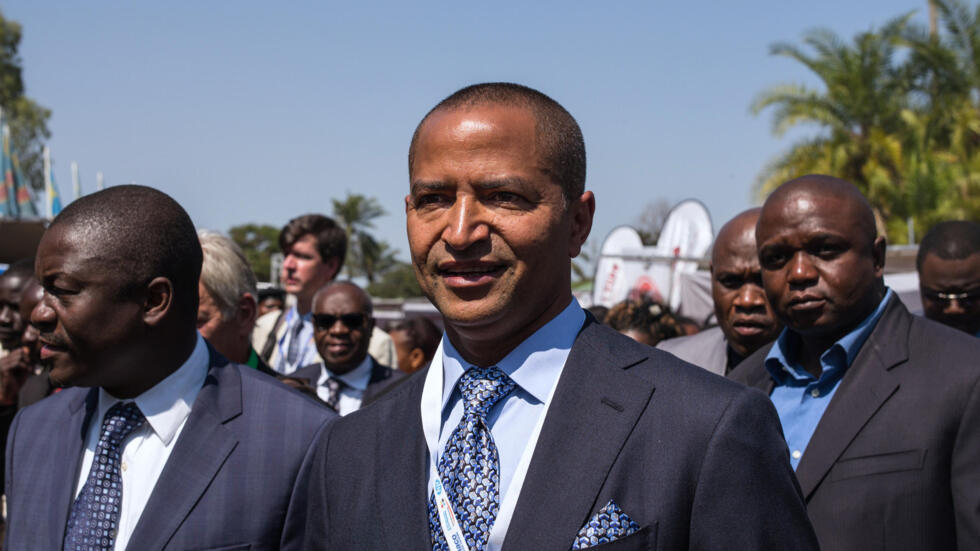
In 2000 during the civil war that brought former President Laurent Dezire Kabila (the father of Joseph) to power, Katumbi moved to Zambia where he continued his business ties in transportation and only returned in 2003 on the invitation of the government to help fix the mining industry in Katanga.
Since 1997, he has been at the helm of DRC’s most successful football club TP Masembe in Lubumbashi city and he has invested heavily in it to becoming a continental power, winning the Confederation of African Football (CAF) Champions League five times and becoming the first African team to play in the FIFA Club World Cup finals in 2010.
Because of his contribution in the footballing world, Katumbi was in 2012 elected to the FIFA strategic commission while in 2013, he was a member of the African Cup of Nations organizing Committee until 2017.
Katumbi was elected to the national assembly in 2006 before becoming the first democratically elected Governor of Katanga province in January 2007. Shortly after he took office as Governor, Katumbi implemented an export ban for raw minerals, including cobalt, forcing major mining companies to either build processing plants in the province or pay a tax on the exported concentrate.
Alongside the mining sector growth during his Governorship, Katumbi has been credited for expanding the province’s economy including the service sector, energy sector and agriculture sector.
Following accusations of him by the Kabila government that he had incited a rebellion and being behind the 2018 Equateur Province Ebola virus outbreak, Katumbi pulled out of the presidential race and instead held discussions with Tshisekedi, fielding him as a single candidate.
Meanwhile, Katumbi faces a legal challenge to his Presidential bid for the December 20 elections following the passing by the National Assembly of a bill in July 2021 that would restrict the presidency to Congolese nationals with two Congolese Parents. His father is of Greek origin while the mother is of Congolese origin.
Somebody essentially lend a hand to make significantly articles I’d state. That is the very first time I frequented your website page and up to now? I surprised with the research you made to make this actual submit amazing. Wonderful task!
I don’t think the title of your article matches the content lol. Just kidding, mainly because I had some doubts after reading the article. https://accounts.binance.info/register?ref=P9L9FQKY